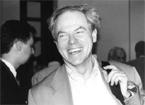
András Sajó is a judge at the European Court of Human Rights, Strasbourg. He took his position on February 1, 2008. He is a University Professor at CEU and Global Visiting Professor of Law at New York University Law School. Professor Sajó was the founding dean of Legal Studies at CEU. In addition to his stature as a prominent constitutionalist, he is also a distinguished scholar in the human rights field, including media regulation. Professor Sajó has been extensively involved in legal drafting throughout Eastern Europe. In addition, he participated and/or advised in drafting the Ukrainian, Georgian, and South African constitutions. He served as Counsel to the President of the Republic of Hungary (1991-1992) and chaired the Media Codification Committee of the Hungarian Government (1994). He also was the principal draftsman of the Environment Code for the Hungarian Parliament (1991-1992), as well as the founder and speaker of the Hungarian League for the Abolition of the Death Penalty. He has also served as Deputy Chair of the National Deregulation Board of Hungary.
He is a member of the American Law Institute (1997) and the Hungarian Academy of Sciences (1995).
His employments: 2008- Judge, European Court of Human Rights, Strasbourg; 1992-2008 Professor, Chair, Comparative Constitutional Law Programs, Central European University, Budapest, Legal Studies Department; 1991-92 Founding Dean, Central European University, Budapest, Legal Studies Department; 1972-1982 fellow, 1983-1988 Senior Fellow, 1989-2008 Scientific Counselor, Hungarian Academy of Sciences, Institute for Legal Studies; 1989-90 Deputy Chairman, National Deregulation Board of Hungary; 1988-89 Member, Constitution Drafting Committee, Hungary; 1984-99 Professor of Law, School of Economics, Budapest; 1979-84 Associate Professor of Comparative and International Business Law, School of Economics, Budapest.
Visiting Professor: University of Toronto (1999); Guest Lecturer, Columbia University, N.Y. Colloquium on Constitutionalism in Eastern Europe (with Professor Louis Henkin) & Religious Human Rights course at Columbia's Human Rights Program (1996, 1991, 1990); University of Chicago Law School (1993, 1996); 1991- Recurrent Visiting Professor, Cardozo Law School New York; Visiting Professor, State University of New York at Buffalo Law School (1991).
He also held many positions in public service: Chair, Broadcasting Drafting Commission, Hungary (1994); Consultant, World Bank (1993-1994, 1992, 1990); Consultant Environmental Policy & Management, World Bank Project in Russia (1991-1992); Consultant, United Nations Development Program (1989).
He is also member of the Association Internationale de Droit Économique; Internationale Vereinigung für Rechtsphilosophie; International Sociological Association, Research Committee on Industrial Democracy; Hungarian League for the Abolition of the Death Penalty (Founder and past Speaker).
In 1986, he received the Hungarian Academy of Sciences Book Award; in 1993, The Blackstone Lecture at Oxford University.
QUALIFICATION
1982, Doctor of Legal Sciences, Hungarian Academy of Sciences
1977, Ph.D. Candidate of Legal Sciences, Hungarian Academy of Sciences
1972, Doctor Juris, Eötvös Loránd School of Law, Budapest
RESEARCH AREAS
Constitutions, Law and Regulation
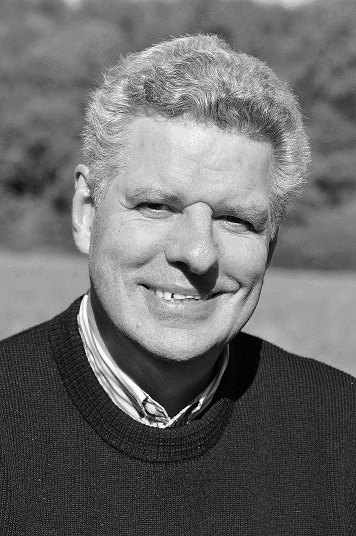
Louis-Léon Christians, Ph.D., is professor and head of a Chair for Law and Religion at the Université catholique de Louvain (UCL), where he is also president of a Research Institute for Religious Studies (RSCS) and Director of the Master in Religious Studies. In Belgium, he was Head of a Federal Commission for Law and Religions Reform in Belgium (2008-2011) and a member of the Belgian Federal Observatory on Cults (CIAOSN) (1999-2012). Since 1999, he has also been an expert in religious affairs for the Council of Europe, United Nations UNHCHR and European Union. His research interests, publications, and teaching cover the fields of Religious Freedom, Churches and States Relationships in Europe and International Law and comparative religious laws. In 2014, he was elected by the Parliament as one member of the Board of the Anti-discrimination Belgian federal Commission.
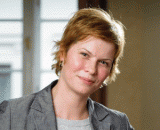
Renáta Uitz is Head of the Department of Legal Studies and Chair of the Comparative Constitutional Law program. Her research and teaching cover subjects in comparative constitutional law in Europe and North America, transitional justice and human rights protection, with special emphasis on religious liberty and sexuality. She is the author of Constitutions, Courts and History (2004) and Freedom of Religion in European Constitutional and International Case Law (2007), and the editor of The Constitution in Private Relations: Expanding Constitutionalism (with Andras Sajo, 2005), Constitutional Topography: Values and Constitutions (with Andras Sajo, 2010), and most recently Arguments that Work: Strategies, Contexts and Limits in Constitutional Litigation (2013).
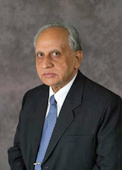
Dr. Tahir Mahmood is a renowned jurist specializing in Islamic Law, Hindu Law, Religion and Law and Law Relating to Minorities. He has been Dean, Faculty of Law, University of Delhi; Chairman, National Commission for Minorities; Member, National Human Rights Commission; and Jurist-Member, Ranganath Misra Commission. Dr. Mahmood is a globally noted authority on Minority Rights, Islamic Law, Legal Systems of the Arab World, and Hindu Law, subjects on which he has written and edited more than two dozen books and 500 research papers. His academic work which focuses on his progressive interpretation of these laws is widely acclaimed and has been cited by the Supreme Court of India and many State High Courts in more than 50 judgments besides being prescribed by many Indian and foreign universities for higher legal studies. He was the first Muslim to be named to the Law Commission of India, serving as the only permanent member of the Eighteenth Commission. He received the Distinguished Service Award from the International Center for Law and Religion Studies and the 7th prestigious “Shah Waliullah Award” from the Institute for Objective Studies, for outstanding contribution in the field of Islamic law. Dr. Mahmood has inaugurated, attended, and presided over numerous international conferences and seminars all over the world and has delivered lectures at Harvard, Cambridge, London, Iowa and many other universities. As an expert on family laws, he has advised the International Commission of Jurists and many foreign governments. He is associated in different capacities with a number of notable Indian and foreign academic, legal, and human rights organizations, including the International Society on Family Law, Paris; the Vienna Christian-Islamic Round Table; the International Consortium of Religion and Law Studies, Milan; the Institute of Muslim Minority Affairs, Jeddah; and the Committee for Drafting the Model Constitution for Islamic Countries, Kuala Lumpur.
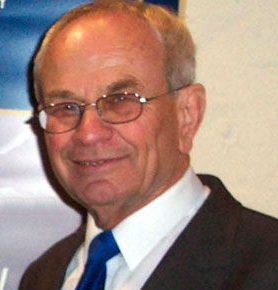
Asher Maoz is the Founding Dean of the Peres Academic Center Law School. He was, for many years, on the Faculty of Law at Tel-Aviv University, where he taught Constitutional Law, State and Religion, Freedom of Speech, Family Law, and Succession Law. Professor Maoz holds the degrees LLB and LLM, both summa cum laude (Hebrew University), M Comp L (University of Chicago), JSD (Tel-Aviv University) and Doctor Honoris Causa (Ovidius University, Romania). He is the founding Editor-in-Chief of Law, Society and Culture; a former editor of the Tel-Aviv University Law Review; a member of the Scientific Board, Review Dionysina; a member of the Academic Council of The International Academy for Jewish Leadership; and a member of the Academic Council, Shalem College, Jerusalem. Maoz was Chair of the Law Commission for Journalists’ Privileges; served as academic advisor to the Knesset Constitution, Law and Justice Committee on adopting a constitution for the State of Israel; and serves with many other organizations. He has taught at several universities in the United States, Europe, and Australia, and is the author of numerous publications on the intersections of law and religion. He is a member of the Steering Committee of the International Consortium for Law and Religion Studies (ICLARS).
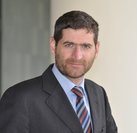
Andrea Pin (Venice, Italy, 1976), Senior Lecturer in Constitutional and Comparative Law, University of Padua, holds a PhD from the University of Turin. He has clerked at the Italian Constitutional Court since 2011. He is a Senior Fellow at the Center for the Study of Law and Religion at Emory University. He has authored two books, edited two books on new human rights and the Italian translations of two English-written books on Protestantism. His fields of study cover law and religion, comparative perspectives on human rights, comparative federalism and constitutional interpretation.
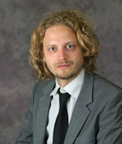
Jeroen Temperman is an assistant professor of public international law at Erasmus University Rotterdam, lecturing on international human rights law. In 2010 he was appointed EUR-fellow, enabling him to carry out his 4-year research project entitled “The Prohibition of Advocacy of Religious Hatred in International Law”. He is also the editor-in-chief of Religion & Human Rights: An International Journal. He has authored and edited several books on international human rights law, including: State–Religion Relationships and Human Rights Law (Leiden/Boston: Martinus Nijhoff Publishers 2010); Human Rights, co-authored with Kristin Henrard (The Hague: Boom Juridische Uitgevers 2011, 199 pp); a book on socio-economic rights within the European Union, co-authored with Rob Buitenweg en Kathalijne Buitenweg (forthcoming 2013); and (ed.) The Lautsi Papers: Multidisciplinary Reflections on Religious Symbols in the Public School Classroom (Leiden/Boston: Brill/Martinus Nijhoff Publishers 2012).
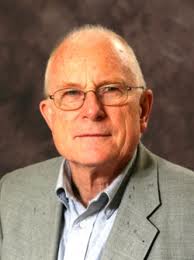
Tore Lindholm is associate professor (philosophy) at the Norwegian Centre for Human Rights, Faculty of Law, University of Oslo and board member of the Oslo Coalition on Freedom of Religion or Belief and of the Human Rights Committee of the Church of Norway. His research interests focus on (1) the grounds for embracing universal human rights and in particular the right to freedom of religion or non-religious conviction and (2) the two-way traffic between human rights and religions (in particular with respect to Islam and Muslims). He co-edited, with Cole Durham and Bahia Tahzib-Lie, the volume Facilitating Freedom of Religion or Belief: A Deskbook (Brill 2004), which is now published in Indonesian and Russian translations, with a Chinese translation under way. Lindholm co-initiated and sat on the steering committee of the Norwegian Research Council Ethics Program 1990-2001. He co-edited a book on An-Naíimís Islamic reform thinking, Islamic Law Reform and Human Rights: Challenges and Rejoinders (1993, with Kari Vogt) and with Cora Alexa Døving and Sidra Shami produced Religious Commitment and Social Integration: Are there significant links? A pilot study of Muslims in the Oslo area with a family background from Pakistan (2010). He is author of The Cross-Cultural Legitimacy of Human Rights: Prospects for Research (1990/1994); Article 1: A new beginning? in The Universal Declaration of Human Rights: A Common Standard of Achievement (1999); Ethical justification of universal rights across normative divides in Universal Ethics (2004); and Perspectives and Proposals from Scandinavian Scholars (2002).
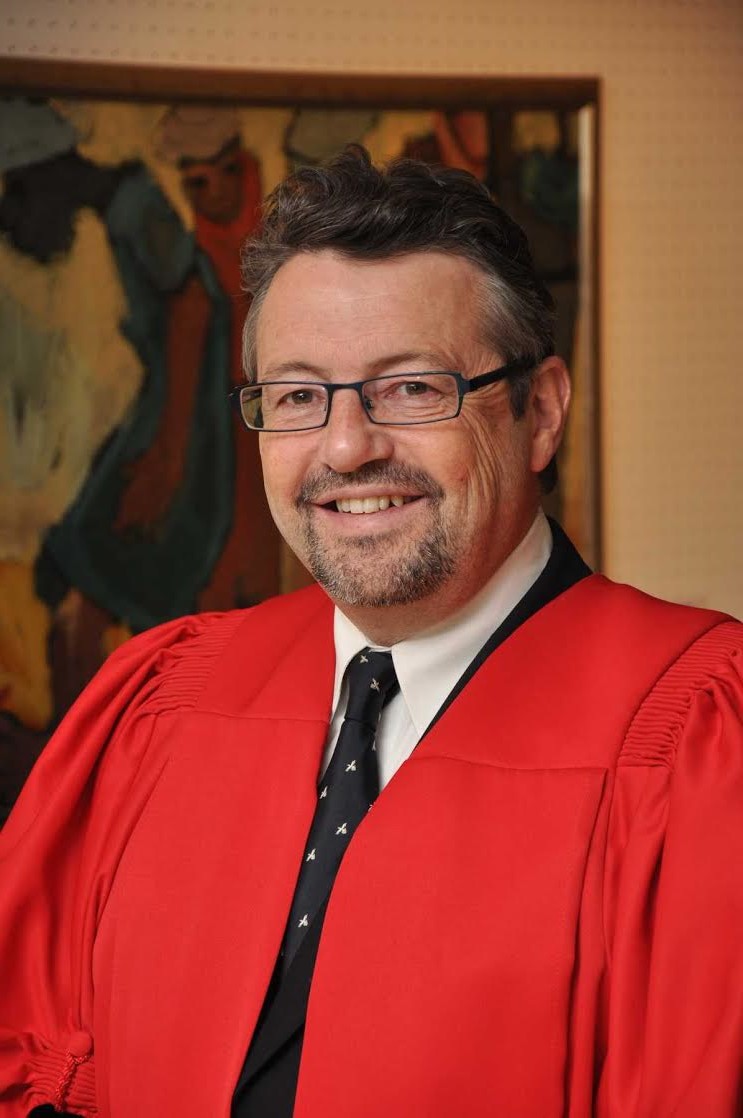
IAIN T. BENSON, BA (Hons.), MA (Cantab.), JD, PhD,
Born Edinburgh Scotland, raised in Canada, lives in France; called to the Bars of B.C. and Ontario; Professor Extraordinary, University of the Free State, Bloemfontein, South Africa (2009, ongoing); Visiting Professor (Comparative Constitutional Law) Faculty of Law, University of Western Ontario, Canada (2014); Research Fellow, South African Institute for Advanced Constitutional, Human Rights, Public and International Law (2008, ongoing); Senior Research Fellow, Chester Ronning Centre for the Study of Religion and Public Life, University of Alberta (2010, ongoing); Member of the Board and Executive Committee of the Global Centre for Pluralism, Ottawa, Canada (2010, ongoing); retained by the Federal Government of Canada for Policy Research Initiative on “Religion and Public Policy” (Jan 2008); one of the drafters of the South African Charter of Religious Rights and Freedoms (2010); Special Rapporteur on Law and Religion in Canada and South Africa to the Pontifical Academy of the Social Sciences, Vatican City (2012); many academic articles and book chapters; work cited by both the Supreme Court of Canada and the Constitutional Court of South Africa.
Author, Living Together with Disagreement: Pluralism, the Secular and the Fair Treatment of Beliefs by Law, Connor Court Publishing, Australia in 2012. PhD thesis (Wits, 2013: “An Associational Framework for the Reconciliation of Competing Rights Claims Involving the Freedom of Religion”).
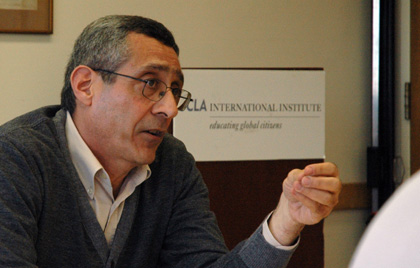
Haldun Gülalp, a sociologist by training, is currently Professor of Political Science at Yildiz Technical University in Istanbul, Turkey. He has held visiting professorships at George Washington University, Northwestern University, UCLA, and others, and was awarded research fellowships at the Woodrow Wilson International Center for Scholars, Washington, DC, and St. Antony’s College, Oxford University. He has published widely in the fields of political sociology, sociology of religion, citizenship, and secularism.
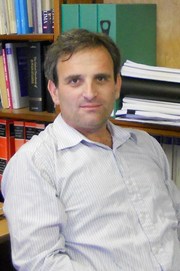
Dr. Joseph E. David has held many positions which include a Sub-Faculty Associate Member, Senior Lecturer at Sapir Academic College and the Hebrew University of Jerusalem, and a Research Fellow at Van Leer Jerusalem Institute. His interests are Law and Religion, Comparative Jurisprudence, Legal Theory and Legal History. Dr. David is currently working on perceptions of kinship and incest in medieval thought (mainly within the Karaite and the Eastern Churches legal writings). Some of his publications include The State Rabbinate: Election, Separation and Freedom of Expression (Jerusalem: Israel Democracy Institute Press, 2000) (Hebrew); The Family and the Political: The Political Meaning of the Family in a Liberal Society (Jerusalem: Israel Democracy Institute, 2012) (Hebrew); Toleration within Judaism, with Martin Goodman, Corinna Kaiser, and Simon Levis-Sullam (Oxford: The Littman Library of Jewish Civilization, 2013) (English); and Between Logos and Nomos – Law and Theology in Medieval Jewish Thought (Tübingen: Mohr Siebeck, forthcoming )(English).
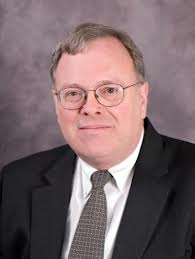
International Center for Law and Religion Studies,
J. Reuben Clark Law School, Brigham Young University
W. Cole Durham, Jr., is Director of the International Center for Law and Religion Studies, a position he has held since the Center was officially organized on January 1, 2000. A graduate of Harvard College and Harvard Law School, where he was a Note Editor of the Harvard Law Review and Managing Editor of the Harvard International Law Journal, Professor Cole Durham has been heavily involved in comparative law scholarship, with a special emphasis on comparative constitutional law. He is currently the President of the International Consortium for Law and Religion Studies (ICLARS), based in Milan, Italy, and a Co-Editor-in-Chief of the Oxford Journal of Law and Religion. From 1989 to 1994, he served as the Secretary of the American Society of Comparative Law, and he is also an Associate Member of the International Academy of Comparative Law in Paris—the premier academic organization at the global level in comparative law. He served as a General Rapporteur for the topic "Religion and the Secular State" at the 18th International Congress of Comparative Law held in July 2010. He has also served as Chair both of the Comparative Law Section and the Law and Religion Section of the American Association of Law Schools. Professor Durham has taught at the Brigham Young University Law School since 1976, and he was awarded the honorary designation of University Professor there in the fall of 1999. Since 1994, he has also been a Recurring Visiting Professor of Law at Central European University in Budapest, where he teaches comparative constitutional law to students from throughout Eastern Europe, and increasingly from Asia and Africa as well. He has also been a guest professor in Gutenberg University in Mainz, Germany and at the University of Vienna. In January 2009, he was awarded the International First Freedom Award by the First Freedom Center in Richmond, Virginia.
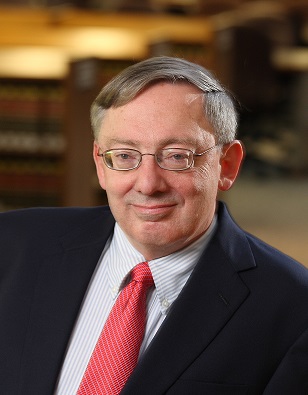
Douglas Laycock, one of the nation's leading authorities on the law of remedies and also on the law of religious liberty, is the Robert E. Scott Distinguished Professor of Law and Professor of Religious Studies at the University of Virginia. Before joining Virginia's faculty in 2010, Laycock served as the Yale Kamisar Collegiate Professor of Law at the University of Michigan Law School. Prior to that he taught for 25 years at the University of Texas and for five years at the University of Chicago. He is the author of the leading casebook Modern American Remedies; the award-winning monograph The Death of the Irreparable Injury Rule; and many articles in the leading law reviews. He has co-edited a collection of essays, Same-Sex Marriage and Religious Liberty, and he recently published Religious Liberty, Volume I: Overviews and History, and Volume II: The Free Exercise Clause. These two volumes are the first half of a four-volume collection of his many writings on religious liberty. He has in addition published many articles on religious liberty and on the law of remedies. He is an experienced Supreme Court litigator, and played a key role in developing state and federal religious liberty legislation. He is a graduate of Michigan State University and the University of Chicago Law School, a Fellow of the American Academy of Arts and Sciences, and a Vice President of the American Law Institute.
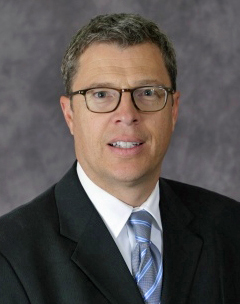
Brett G. Scharffs is Associate Dean for Research and Academic Affairs of Brigham Young University's J. Reuben Clark Law School, where he is Francis R. Kirkham Professor of Law and Associate Director of the International Center for Law and Religion Studies. His teaching and scholarly interests include comparative and international law and religion, jurisprudence and adjudication, and international business law. Professor Scharffs is a graduate of Georgetown University, where he received a BSBA in international business and an MA in philosophy. He was a Rhodes Scholar at Oxford University, where he earned a BPhil in philosophy. He received his JD from Yale Law School, where he was Senior Editor of the Yale Law Journal. Professor Scharffs was a law clerk on the U.S. Court of Appeals, D.C. Circuit, and worked as a legal assistant at the Iran-U.S. Claims Tribunal in The Hague. Before teaching at BYU, he worked as an attorney for the New York law firm, Sullivan & Cromwell. He has previously taught at Yale University and the George Washington University Law School, and is a visiting professor each year at Central European University in Budapest. In his 16-year academic career, Professor Scharffs has written more than 50 articles and book chapters, and has made over 150 scholarship presentations in 20 countries. His casebook, Law and Religion: National, International, and Comparative Perspectives, co-written with his colleague, W. Cole Durham, Jr., was published by Aspen / WoltersKluwer in 2010, second edition in preparation.
